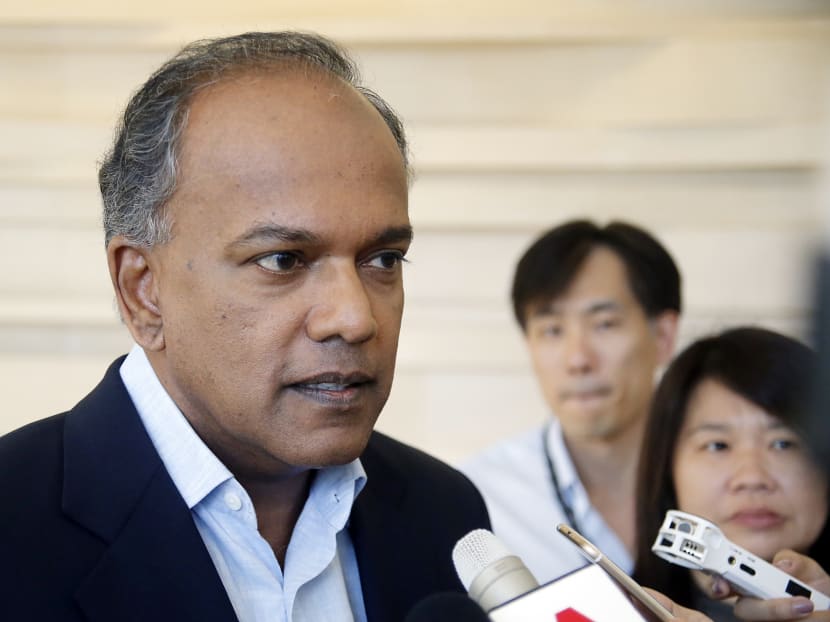Substantial support for ISA in S’pore, says Shanmugam
SINGAPORE — There is substantial support for the Internal Security Act (ISA) in Singapore, with the public generally seeing the regional security context and understanding the government’s use of it, said Law and Home Affairs Minister K Shanmugam at a dialogue on Monday (Nov 14).
SINGAPORE — There is substantial support for the Internal Security Act (ISA) in Singapore, with the public generally seeing the regional security context and understanding the government’s use of it, said Law and Home Affairs Minister K Shanmugam at a dialogue on Monday (Nov 14).
“I believe support for the ISA, if anything, has increased,” he said, at a dialogue organised by the National University of Singapore (NUS) Political Science Alumni Association and security services firm TwinRock Global.
He was responding to a question from a political science student on whether a shift towards liberal values — including calls to abolish the ISA on the basis of human rights — would affect the Government’s ability to clamp down on divisive rhetoric.
“I think the pendulum on the ISA has swung the other way, in that I think there’s substantial support and the fact that our population is highly educated and very aware of what’s happening and know that any abuse of the Act would immediately lead to consequences by the population,” said Mr Shanmugam. He also said the Government has been using the ISA regularly over the last two years “without anybody really saying anything about it”.
The ISA is a law that allows for preventive detention, the prevention of subversion and the suppression of organised violence against individuals and property for the sake of internal security. The law has most recently been used to detain Singaporeans for supporting the Islamic State and for wanting to fight in Syria.
Addressing about 350 participants, including NUS students, security firm representatives and diplomats, Mr Shanmugam spoke extensively about the threat of terrorism and the Islamic State, before taking questions. He also spoke about the threat in the region of fighters returning from the Middle East, and extremists released from prisons in Indonesia.
Asked if there was a link between security issues and changes to the Elected Presidency scheme that were passed last week in Parliament, Mr Shanmugam said they were not directly related. Among other things, the scheme now provides for reserved elections for members of a particular race if the race has not been represented for five consecutive terms.
Mr Shanmugam said the changes are part of Singapore’s policies to ensure a fair stake for everyone and for different races to live together. “The president is a symbol of the state and the nation, and if that symbol is exclusively, say, Chinese, then over time the spirit of multiracialism would be impacted a little bit,” he added.
Mr Shanmugam was also asked if a feature of the app developed for the national SGSecure movement — to sensitise the public to security threats — would result in racial profiling. The feature allows the public to alert the authorities to suspicious or unusual behaviour, and the participant wondered if it would lead to instances such as an Arab-looking economist being escorted off an American Airlines flight earlier this year for writing what turned out to be merely differential equations.
Mr Shanmugam said people could provide the wrong information, but noted that Singaporeans are largely accepting of one another’s differences. Rather, the risk is an apathetic public, he added.
“I think the risk is at the other end, where we’re so used to such a secure environment that I think most people in Singapore still probably think that there’s no need to be concerned. And so the real challenge for us is how do we make the population more sensitised, not that they’d overreact,” Mr Shanmugam said.







